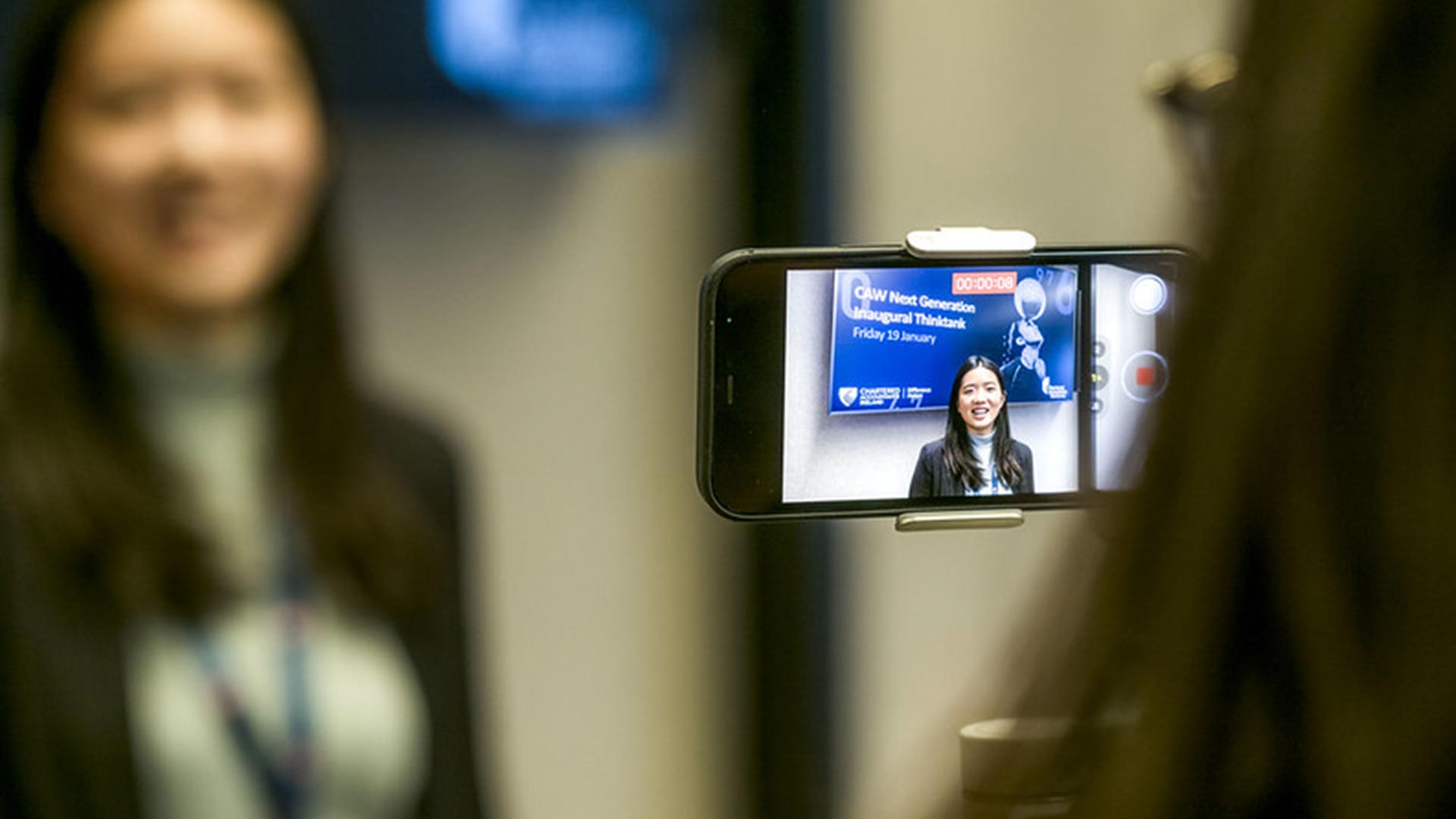How ISCA supports members in this area
The look of the future promises to be exciting in the 21st century, with technology revolutionising the way we live, learn and work. I am certain you have felt the impact of technology, be it in your lifestyle – entertainment, transportation, banking, retail, travel – or in the way businesses operate. In the first half of 2018, we saw Singtel and Razer coming together in a tie-up to create the largest e-payment network in Southeast Asia, accelerating Singapore’s drive towards a cashless society. Our hawker centres have also started to implement cashless payments despite the traditional culture to use cash when buying food. While digital transformation could bring about new business opportunities, we have also witnessed the onset of Facebook’s mishandling of users’ personal data that triggers concerns about data privacy issues. No doubt, the way we work, communicate and live will continue to change.
To stay innovative and relevant, Singapore has set its focus around the themes of “resilience” and “innovation” as it assumed the ASEAN Chairman in 2018. Similarly, throughout ASEAN, we have seen the convergence of similar efforts in the region to see greater engagement across ASEAN and beyond. From Batam’s tech park – a 100-hectare Nongsa Digital Park with aspirations to be a “digital bridge” between Singapore and Indonesia – to the establishment of partnership between the Monetary Authority of Singapore (MAS) and State Bank of Vietnam (SBV) aimed at encouraging fintech innovation, we can identify a common theme of Singapore positioning itself to gear up in relevance and innovation to remain competitive as a region.
Ready for the digital transformation journey?
Given the prevalent use of technology in our everyday lives, it has permeated every industry and profession including the accountancy profession. Our profession has been undergoing digital transformation in many aspects. With technological disruption, it is vital for members to consider these questions:
- What are the new technological tools that are available and can disrupt (or is already disrupting) the nature of work in an organisation’s Finance function?
- How is the Finance function going to evolve (or is already evolving) in terms of job scope and skill sets?
- Are you ready to embrace technology and embark on a digital transformation journey?
In this article, I will focus on technological disruption as it is one of the key trends affecting business models, jobs and opportunities, and show how ISCA is supporting the needs of our members in this area. I will share more about global and regional developments that our members should be mindful of in my next article.
ISCA helps you stay ahead of the rest
At ISCA, we endeavour to keep our members updated on the latest trends and developments via resources including this IS Chartered Accountant Journal, the weekly newsletter entitled “Insights” and other publications. The ISCA Journal, for instance, has been publishing “technical” articles covering areas such as financial reporting, auditing and assurance as well as ethics, and emerging topics such as data & audit analytics, regional/country reports, financial forensics, and the latest technologies and their implications on the profession. The recent article on “Robotic Process Automation in Finance” illustrated how RPA offers immense potential to improve business efficiency, data security and effectiveness. It is important for one to be tuned in to the latest news and developments and therefore, I strongly encourage members to look out for the latest ISCA articles and topical publications as a quick way to stay ahead of the curve, so as to remain relevant in today’s fast-paced work environment.
Our 32,000-strong membership is making their stride across industries and sectors in Singapore and around the world. To support the needs of our diverse membership, ISCA takes effort to design initiatives, programmes and activities with the needs of the different member segments in mind. These activities are lined up throughout the year so as to make them available to as many members as possible. On this note, I would like to highlight that the Institute’s signature Singapore Accountancy and Audit Convention (SAAC) will now comprise a series of four conferences targeting different member segments, and instead of being held in one day, the conferences have been scheduled between March and September.
The ISCA Budget Update Seminar, which took place in March 2018, was the first instalment of the series. It was a sell-out event attended by over 800 members. The ISCA Practitioners Conference on June 1, for public accountants and audit professionals, brought to the fore hot topics and issues in areas such as accounting, auditing, technology and cybersecurity. At the inaugural ISCA Technology Conference, to be held on August 30, members can expect a showcase of the latest innovative solutions impacting the accounting and finance industry.
Due to the transformative impact of technology on business, ISCA now places significant emphasis on technology across many facets of its work. In the area of thought leadership, we have shared on blockchain, data analytics and cybersecurity risk. These publications and events seek to create awareness among our members of the new technologies, and their impact and implications on businesses and jobs. At the same time, members can consider opportunities in promising growth areas as they prepare for the future economy.
ISCA widens career pathways for members
As Singapore progresses towards a skills-based economy, it is imperative that professional accountants are equipped with the right skill sets that are fit for purpose in the new economy. With this in mind, the Institute has been developing learning roadmaps for Professional Accountants in Practice and Professional Accountants in Business. These efforts have culminated in the launch of the “Learning Roadmap – Auditors in Small-and-Medium-sized Practices” in January 2018. At the end of September 2018, the Institute will be launching the learning roadmap for Financial Accountants and Management Accountants. These learning roadmaps lay out the recommended skills at each proficiency level, and the learning opportunities available to acquire such skills. Such information will be helpful to members in their career planning, and as they work towards their career aspirations.
To ensure that our members continue to remain relevant in today’s technology-driven era, ISCA has been developing specialisation pathways to enable our members to future-proof and deepen their skill sets. This year, the Institute collaborated with the Singapore University of Social Sciences (SUSS) to launch the ISCA-SUSS Business Analytics Certification Programme, which will equip professional accountants with relevant data analytics skills. Armed with business analytics skills, members can then mine through the voluminous data available in their organisations to derive useful insights for decision-making purposes. The programme provides members with hands-on experience in business analytics software tools, and this allows them to acquire practical skills that can be readily applied at work. Another specialisation pathway which is in high demand is the ISCA Financial Forensic Accounting Qualification (FFA Qualification) – the first such qualification offered by a professional body in Southeast Asia. The FFA Qualification also places emphasis on new technologies such as digital forensics, which includes data analytics and cyber-response.
With Singapore reported as one of the most hardworking countries in the world, clocking in an average of 45.6 hours every week, ISCA is cognisant that many members find it challenging to balance the demands of their work with the need to continuously develop new capabilities and upskill. To help address this, the Institute has introduced shorter courses, such as the ISCA Professional Risk Management Programme. A four-day programme, it focuses on enterprise and financial risk management, and equips members with the necessary skills to identify and address the different types of risks their organisations typically face in today’s volatile environment. ISCA’s suite of e-learning programmes also serves to meet members’ learning needs 24/7. For example, the ISCA-BPP Professional Education collaboration has yielded 40 short e-learning modules on IFRS and Tax, which are available for members on the go. New online offerings in 2018 include:
- BF002i: Overview of Business Valuation for Financial Reporting
- IA001i: Raising the Value of Internal Auditing with Data Analytics
Concluding remarks
As today’s economies have become more technology-driven, the role of accountants has evolved and will continue to do so. To keep up with the ever-changing business models, members need to equip themselves with the relevant knowledge and skills to navigate the future economy.
The Institute will continue to support our members in their professional development to further their career aspirations.
Lee Fook Chiew is CEO, ISCA.
This article was first published by the Institute of Singapore Chartered Accountants. You can read the original article here












